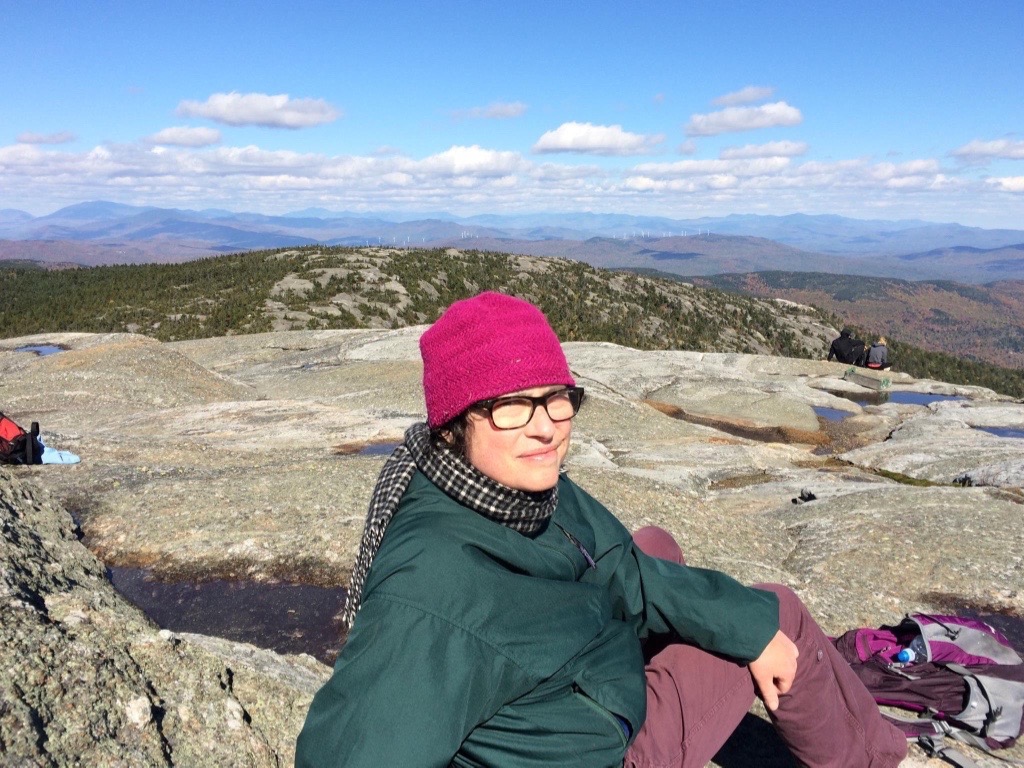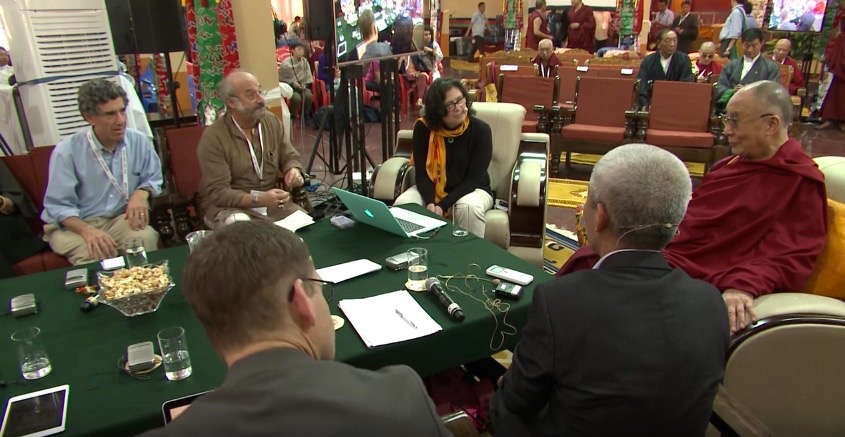
Watertown’s Catherine Kerr battled cancer for 20 years, and during that time furthered the study of meditation on healing the body.
Catherine Kerr did not stand still when she received a diagnosis of cancer, instead, she got very involved in her treatment – at times going against doctors’ recommendations. As an academic she went in a new direction of study, focusing on meditation and traditional Eastern healing, which eventually lead her to a meeting with the Dalai Lama.
In 1995, the Watertown resident received the diagnosis of multiple myeloma, a type of cancer that attacks the plasma cells in people’s bone marrow. Doctors estimated she had 5 years to live, but Kerr lived more than two decades. She passed away in November at the age of 52.
At the time, multiple myeloma was not a well-understood disease. The first few years she did not show symptoms, her husband Jonathan Kranes said, so she did not go through with treatments, which at the time were bone a marrow transplant and Chemo therapy.
“Later on she looked at the success rate, and it was pretty low,” Kranes said. “She definitely made the right call. Subsequently, they have gotten better at doing that.”
Instead, she looked at alternative therapies, including Chinese meditation practices that had been practiced for thousands of years but had not been studied by Western scientists.
“As soon as she was diagnosed she tried any therapy that she could find: nutrition, reiki,” Kranes said. “She really settled in on qigong and tai chi.”
These meditation techniques are not like Buddhist ones, Kranes said, they are more about movement and body awareness.
“After doing some meditation she would say I feel like I am beating it back, healing. It is not something that would always happen,” Kranes said.
Though she sometimes got it wrong, Kerr could often feel how well her body was fighting the cancer. Before blood tests to track her cancer, she could often predict what the results would be, Krantes said

Watertown’s Catherine Kerr, in the scarf, studied the impact of meditation on healing, and her researched her got her an audience with the Dalai Lama.
The cancer diagnosis came at a time of transition in Kerr’s professional career. She had been teaching Social Studies at Harvard, but began researching the placebo effect in scientific studies. She worked with Ted Kaptchuk at Harvard Medical School. Rather than discarding the results from people given the placebo in medical studies, she researched the improvements shown in those patients, despite only receiving sugar pills, Kranes said.
She also, along with first author Sara Lazar, contributed to early research into the science of the effect of meditation on the brain.
Kerr twice traveled to China to study qigong and tai chi and was the only non-Chinese practitioner. In 2011 she joined the Department of Family Medicine at Brown University and was named Director of Translational Neuroscience in the Contemplative Studies Initiative.
Through her study of meditation, she got involved with the Mind & Body Institute. This lead her to be selected to travel to India to meet with the Dalai Lama. After her death, the Mind & Life Institute established the Catherine Kerr Award for Courageous and Compassionate Science.
She also gave a TED Talk on her research which proved to be one of the more popular ones. (View it here: http://tedxtalks.ted.com/
Kranes said his wife was proud of the legacy she left through her teaching and mentoring.
“The one thing she was most proud of is a lot of her students and research assistants have gone on to careers in medicine and academics,” Kranes said. “She has always seen herself as a teacher. It was important for her to work with young people and pass on her knowledge.”
To donate to the Catherine Kerr Award go here: https://www.mindandlife.org/